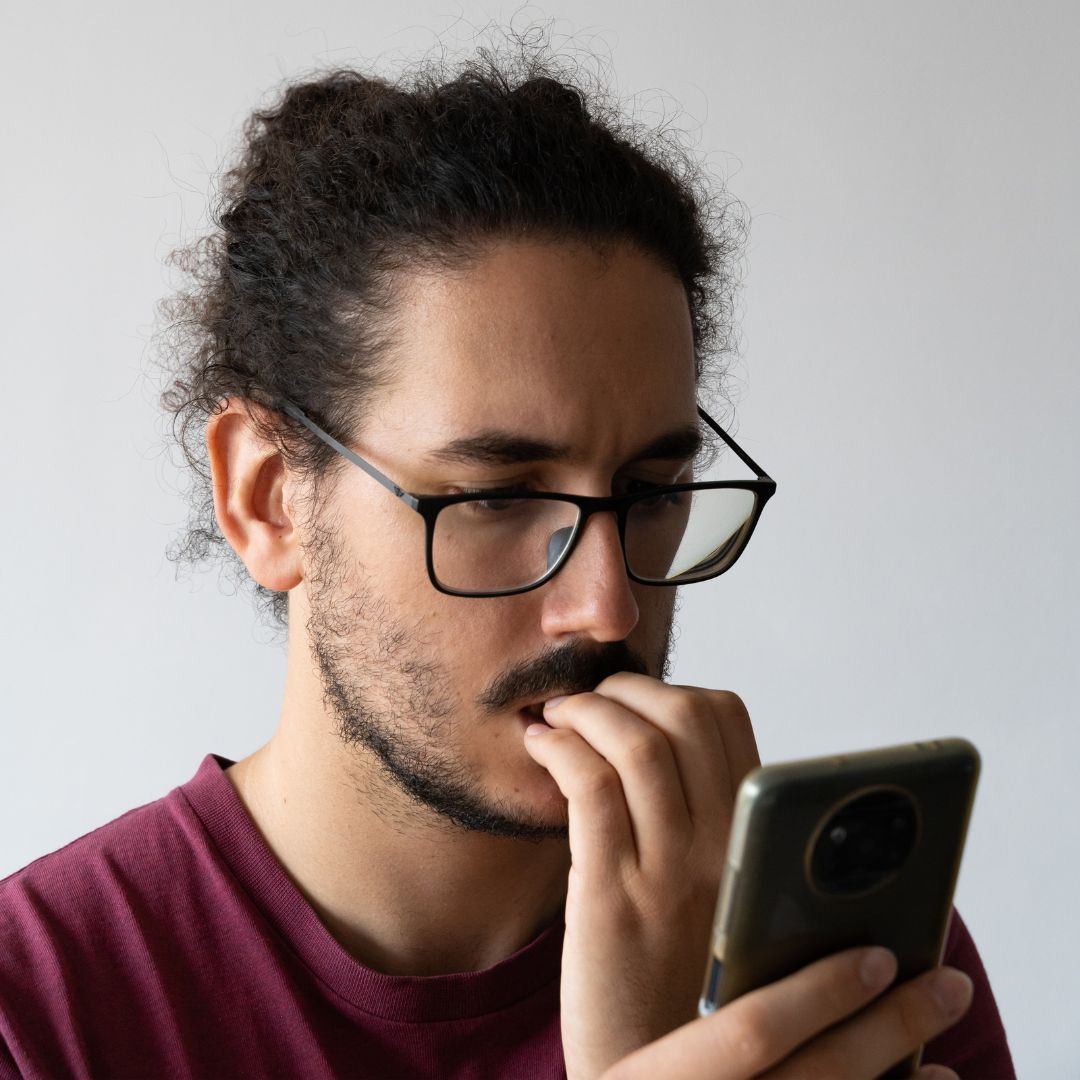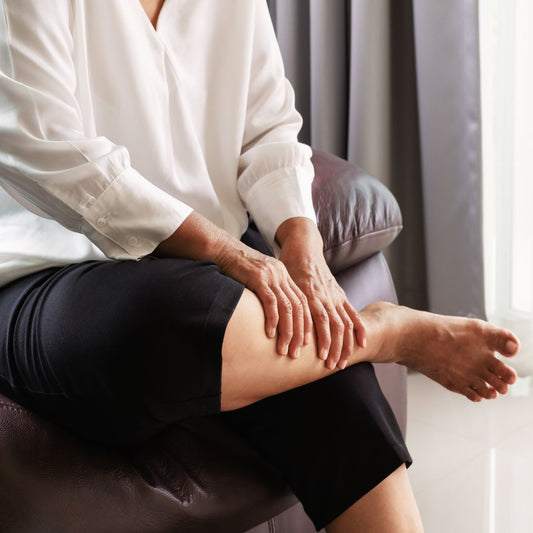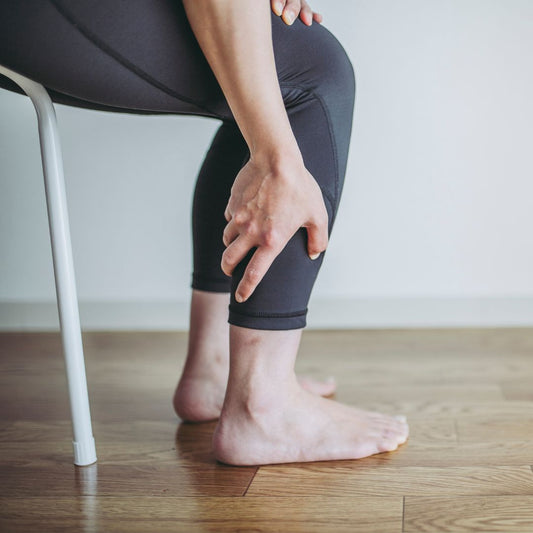By Dr. Peter Klapper Ph.D.
It’s no secret that biting your nails in public is frowned upon. Many view it as a gross habit, and personal preferences aside, it can lead to many negative effects. Biting your nails might ruin your manicure, but it could also turn your nails into a breeding ground for nail fungus, infection, and more. Wondering what the real risks of biting your nails are? Read on.
The effect biting your nails has on your body is immediate, and the most dangerous factors at play aren’t the most obvious. Think about it – when you bite your nails, you’re likely sticking your unwashed fingers into your mouth, welcoming a host of bacteria and debris into your body. That alone drastically increases your risk of contracting a cold or other illnesses.
Even if you wash your hands constantly, nail biting still puts your nails at risk. Chewing on your nails increases your risk of paronychia, an infection of the skin surrounding the nail that presents with redness, swelling, pain, and discomfort. Most cases of paronychia are bacterial, but sometimes the infection takes the form of a fungal growth that could require a fungal nail treatment or even a visit to the doctor.
Bad news for nail biters with warts, too. Biting your fingernails is a great way to spread warts to other parts of your hands by helping the human papillomavirus that causes the warts to spread. The more exposed skin on your hands and the more you chew on your nails, the faster the virus will spread and the more warts you’ll see!
The nail itself can be damaged as well, a nightmare for anyone who looks forward to a good manicure every once in a while. You see, most of the actual nail is created in the lunula, the part of your nail bed known as the “white hill”. Repeated abuse of this area can cause inflammation, and that inflammation can cause your fingernail to grow abnormally.
While many of these consequences are temporary, each one is an inconvenience, and ignoring your symptoms can lead to more permanent damage. An infected lunula, for instance, can be permanently damaged, causing the effected nail to grow abnormally forever.
There’s one other body part at risk when you chew your nails – your teeth. Biting down on nails, especially tougher nails, can permanently shift your teeth of of place or even cause them to chip or break given enough force.
Now that we’ve covered all of the possible effects of nail biting, I’m sure many of you are wondering how to stop nail biting. Most people who bite or chew on their nails are doing so as a reaction to stress – nail biters are often relieving or focusing stress with a repeated activity in the same way someone might tap a pen or fidget. The only difference between nail biting and pen tapping is that nail biting is damaging to your body and risky for your immune system, so try replacing your nail biting habit with another habit. Try turning a ring or tapping your fingertips against something. The key is to find a replacement habit that doesn’t leave you looking for a home remedy for nail fungus! If you can bite your nails less, soon you’ll be able to stop biting them forever, preventing damage, disease, and more.
It’s no secret that biting your nails in public is frowned upon. Many view it as a gross habit, and personal preferences aside, it can lead to many negative effects. Biting your nails might ruin your manicure, but it could also turn your nails into a breeding ground for nail fungus, infection, and more. Wondering what the real risks of biting your nails are? Read on.
The effect biting your nails has on your body is immediate, and the most dangerous factors at play aren’t the most obvious. Think about it – when you bite your nails, you’re likely sticking your unwashed fingers into your mouth, welcoming a host of bacteria and debris into your body. That alone drastically increases your risk of contracting a cold or other illnesses.
Even if you wash your hands constantly, nail biting still puts your nails at risk. Chewing on your nails increases your risk of paronychia, an infection of the skin surrounding the nail that presents with redness, swelling, pain, and discomfort. Most cases of paronychia are bacterial, but sometimes the infection takes the form of a fungal growth that could require a fungal nail treatment or even a visit to the doctor.
Bad news for nail biters with warts, too. Biting your fingernails is a great way to spread warts to other parts of your hands by helping the human papillomavirus that causes the warts to spread. The more exposed skin on your hands and the more you chew on your nails, the faster the virus will spread and the more warts you’ll see!
The nail itself can be damaged as well, a nightmare for anyone who looks forward to a good manicure every once in a while. You see, most of the actual nail is created in the lunula, the part of your nail bed known as the “white hill”. Repeated abuse of this area can cause inflammation, and that inflammation can cause your fingernail to grow abnormally.
While many of these consequences are temporary, each one is an inconvenience, and ignoring your symptoms can lead to more permanent damage. An infected lunula, for instance, can be permanently damaged, causing the effected nail to grow abnormally forever.
There’s one other body part at risk when you chew your nails – your teeth. Biting down on nails, especially tougher nails, can permanently shift your teeth of of place or even cause them to chip or break given enough force.
Now that we’ve covered all of the possible effects of nail biting, I’m sure many of you are wondering how to stop nail biting. Most people who bite or chew on their nails are doing so as a reaction to stress – nail biters are often relieving or focusing stress with a repeated activity in the same way someone might tap a pen or fidget. The only difference between nail biting and pen tapping is that nail biting is damaging to your body and risky for your immune system, so try replacing your nail biting habit with another habit. Try turning a ring or tapping your fingertips against something. The key is to find a replacement habit that doesn’t leave you looking for a home remedy for nail fungus! If you can bite your nails less, soon you’ll be able to stop biting them forever, preventing damage, disease, and more.




